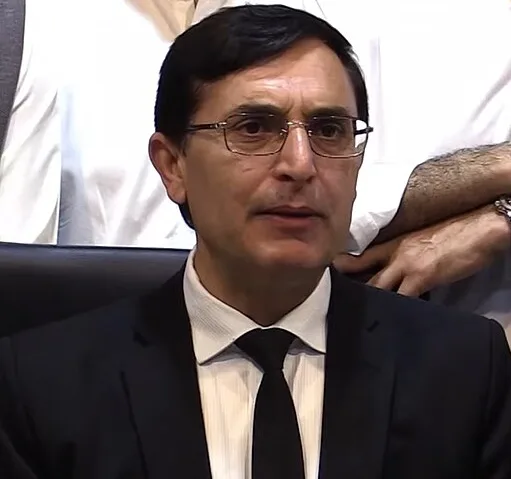Barrister Gohar Ali Khan, released from custody, condemns police actions; anti-terrorism court grants eight-day physical remand to several PTI leaders in rally law violation case
In a significant development for Pakistan Tehreek-e-Insaf (PTI), party Chairman Barrister Gohar Ali Khan was released from police custody on September 10, 2024, following his arrest the previous day under the Peaceful Assembly and Public Order Bill, 2024. The arrest was part of a broader crackdown on PTI for alleged violations of new public assembly regulations.
Addressing the media post-release, Khan criticized the police for their actions, particularly their entry into Parliament House and the arrest of PTI lawmakers. He denounced September 9 as a “black day for Pakistan” and demanded a parliamentary investigation into the incidents.
In the wake of these arrests, an anti-terrorism court (ATC) has ordered eight-day physical remands for seven PTI leaders, including Sher Afzal Marwat, Zain Qureshi, Sheikh Waqas Akram, Naseem-ur-Rehman, and Zubair Khan. The remands are connected to clashes between PTI supporters and law enforcement during a rally at Chongi No 26, as well as other related incidents.
Embed from Getty ImagesShoaib Shaheen, a senior PTI leader, was sent to judicial remand by the ATC in a separate case involving the violation of public assembly laws. The court reviewed evidence, including CCTV footage of Shaheen’s arrest, which his defence argues was unlawful.
The Islamabad High Court (IHC) has also taken up a habeas corpus petition challenging the legality of the arrests. IHC Chief Justice Aamer Farooq summoned Islamabad Inspector-General of Police Syed Ali Nasir Rizvi to explain the detention conditions and questioned the exclusion of lawyers from meeting their clients. The court is awaiting further developments and has adjourned the case for another hearing.
Analysis:
Political:
The release of PTI Chairman Gohar Ali Khan and the ongoing legal proceedings against senior party leaders highlight the increasing tension between the PTI and the current administration. The situation underscores the political volatility and the potential impact on future public demonstrations and political discourse in Pakistan.
Social:
The heavy-handed approach by law enforcement and the arrest of several PTI leaders are likely to generate public debate regarding the balance between maintaining public order and respecting democratic rights. The controversy surrounding the police actions and the handling of the arrests could influence public opinion on the government’s approach to political dissent.
Racial:
The current situation does not directly pertain to racial issues but involves broader concerns about political rights and legal processes. However, the treatment of political figures and activists may have different implications for various social groups depending on their political affiliations and public perceptions.
Gender:
The gender aspect is less prominent in this context, though the broader implications of political and legal decisions can affect both male and female political activists and supporters differently, particularly in terms of access to justice and representation.
Economic:
The legal and political turmoil could have economic repercussions, especially if it leads to prolonged instability or impacts investor confidence. The focus on political clashes and legal battles may divert attention from pressing economic issues facing the country.
